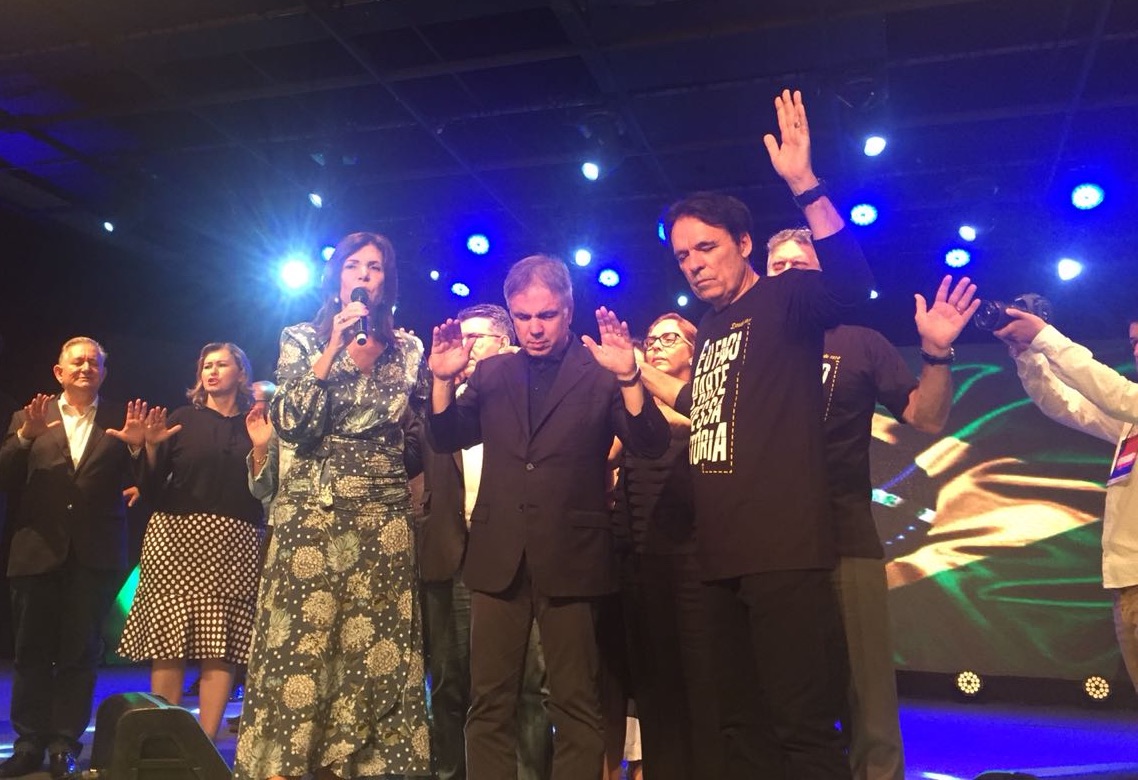
Framing himself as Brazil’s moderate conservative choice for 2018, Flávio Rocha is not wasting time. Immediately after announcing his candidacy, the businessman-turned-politician made sure that Brazil’s media knew that he and his family frequented Evangelical Churches. But last weekend, he also traveled to Mato Grosso do Sul to seek approval from several Evangelical leaders.
Speaking about his decision to run, Rocha reportedly told Evangelical leaders: “I took this step in my life, because the thing that most distressed me was to see our values, the Christian values, totally orphaned. It is up to all of us to ardently defend values that are being lost and eroded in this sad cycle of our recent history.”
Rocha is running with the Brazilian Republican Party (PRB), which has strong ties to the Universal Church of the Kingdom of God’s broadcast media empire Record. But plenty of other candidates are scrambling for Evangelical support.
“There’s this idea that the Evangelical bloc is a homogenous, cohesive group that shares well-articulated ideas. What we continue to notice is that it’s a plural group, as much with political parties as with denominations,” said Bruna Suruagy, a psychology professor at Mackenzie University.
“The Evangelical Caucus adopts a tone and discourse that is quite noisy and performative, which generates the impression of power – perhaps more power than it actually has,” Suruagy told The Brazilian Report.
Pentecostal and neo-Pentecostal Churches in Brazil tend to defend more conservative positions. Suruagy says that Churches...


 Search
Search






































